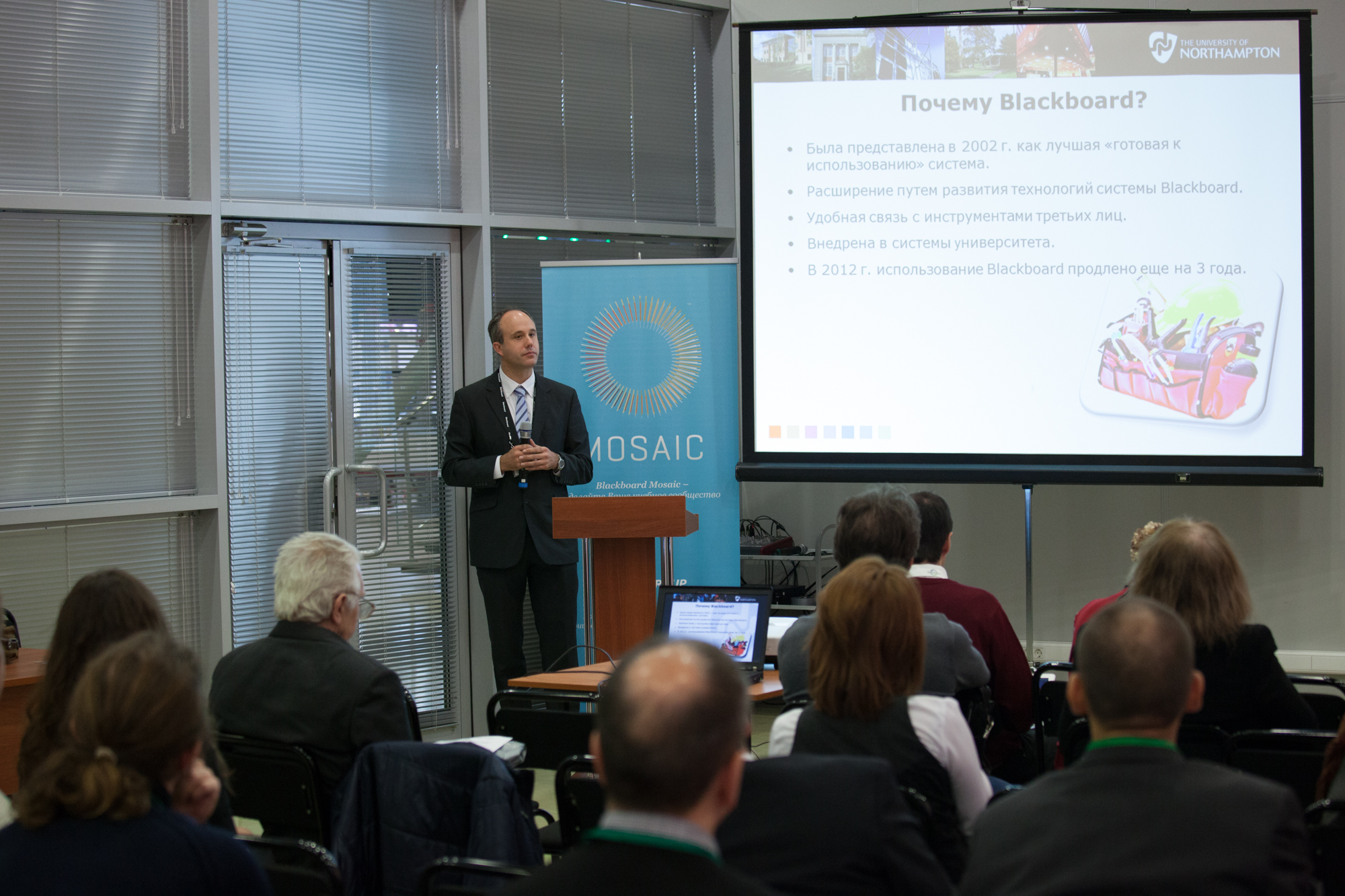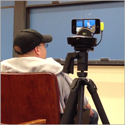Written by Rebecca Heaton
On 10th July an art and ICT Teach Meet event /art exhibition was held at the Northampton Contemporary Art Gallery showcasing the work of students and local school teachers who have been influenced by the universities Innovation fund projects Stem to SteAm and Technology Outdoors, supported by the School of Education, colleagues from UCEE and the LearnTech team.
The event took the form of an artistic ‘happening’ bringing the outside inside to celebrate a year’s worth of work surrounding the projects. Everyone involved had an enjoyable evening, participants could take part in a number of workshops: light-trails, animation and batik whilst artist Emma Davis created collaborative work in response to the event. To explore and share the evening take a look at the storify created.
Prizes were awarded to many teachers at the event with Bridgewater school winning a set of resources to support iPad use in the curriculum donated by Rising Stars. The school developed a whole school project ‘Bridgecraft’ aligned with the Stem to SteAm agenda. The teachers presenting praised how the university supported and inspired developments in their practice by providing project websites, CPD network groups and media days as part of the innovation projects.
“Northampton 2018: Planning, Designing and Delivering Student Success”
The University of Northampton’s Institute of Learning and Teaching in Higher Education is to host a one-day Learning and Teaching conference, entitled Northampton 2018: Planning, Designing and Delivering Student Success. The event will provide an opportunity to celebrate research from within the institution. More details…..
 On the 31st October, 2013, Rob Howe was invited to Education 3.0 in Moscow to present on the strategic development of Learning Technology at The University of Northampton.
On the 31st October, 2013, Rob Howe was invited to Education 3.0 in Moscow to present on the strategic development of Learning Technology at The University of Northampton.
Rob was the only speaker from the UK and joined speakers from leading Russian institutions: FEFU, KAI, LGU, MISiS, and Ural Mining to an audience of Rectors, Provosts, Heads of IT.
The forum was part of a major education exhibition, hosted by the Ministry of Education of the Russian Federation, Government of Moscow and the Moscow Department of Education. The goal was to enhance the access to, and quality of, education through public-private partnership, promoting international best practices that will boost the personal and professional development of individuals.
The Russian government has earmarked £178 million to enable its leading national universities to break into the top 100 in the global league tables. Vladimir Putin, Russia’s president, announced plans that would see at least five of the country’s universities enter the top 100 by 2020. Education 3.0 was part of a number of events which are encouraging institutions to be more innovative in their outlook.
Rob’s presentations were developed in both English versions and Russian versions to cater for the audience at this event and an interpreter was used throughout.

There was a real interest in the Learning Technology work and developments at Northampton including our Changemaker status…..and surprisingly a question on the Northampton clown during the drinks reception ! As a result of the presentations, Northampton has already had requests for greater collaboration and potential sharing of resources between ourselves and Russian institutions.
Thomas Cochrane and Vickel Narayan from AUT University in Auckland New Zealand have piloted the use of an intentional community of practice model to transform lecturer CPD through the embedding of mobile web 2.0 technologies (http://goo.gl/eEQLZ / DOI: 10.3402/rlt.v21i0.19226). Their research over two iterations of the course has significant implications for transforming how lecturing staff approach their role, moving from a heavily pedagogical approach through andragogy to heutagogy. Heutagogy (student-directed learning) requires lecturers to undergo a reconceptualization of their role and to take advantage of the mobility offered by the various Web 2.0 tools (including Twitter, blogs, wikis, Skype) with their own learning experiences being scaffolded through sustained engagement and support; these latter two elements proving essential to their success.
Although they offer a different approach to the five stage approach to e-learning offered by Gilly Salmon (http://www.gillysalmon.com/five-stage-model.html) Cochrane and Narayan’s approach is not new per se, just not so widely reported in academic circles. For example, they argue that “heutagogy … need not be the domain of postgraduate research students only” and having attempted a similar approach myself when teaching HNC law I would agree, but would also reflect that moving away from a didactic approach to a place where individual learners control their own learning journey requires a willingness to relinquish that control and permit a transformation of the teacher role into that of co-learner and facilitator.
Conceptualising students as transformative agents of change is not new, and the ability to take advantage of new technologies like the iPad have a real potential to see learning move up Bloom’s taxonomy to a place where creativity is not only more possible, but also more likely and even encouraged.
Cochrane and Narayan’s redesigned CPD course is actually similar to the Moderating Online Groups (MOG) / Collaborative Learning Experience Online (CLEO) CPD course co-ordinated by the Institute of Learning and Teaching here at Northampton, in that it encourages staff to take advantage of the benefits offered by new technologies and to incorporate them in the classroom by allowing them to experience using those technologies as a student. However, Cochrane and Narayan necessarily have the opportunity to provide lectures with real opportunities to implement their learning and experiment with Web 2.0 in their own learning environments as their course is run over 6 weeks as opposed to 6 hours which is the case with the MOG/CLEO. It will be interesting to see if their model can be implemented at Northampton resulting in a deeper embedding of Web 2.0 in our practice, particularly in more theoretical and academic, rather than the vocational programmes which formed the majority of the subjects taught by the New Zealand staff.



LearnTech have been trialing the Swivl for a while, but I had my first opportunity to try it out in anger at the CAMHS Children and Young People’s Mental Heath Conference at the Sunley Management Centre on 3rd July 2013.
The organiser’s were particularly interesting in capturing video (and particulalrly audio) of two keynote addresses but had limited facilities and budget. Panopto – which is installed on the Sunley lectern – was considered but the limited range and mobility of the web cam was deemed too limiting for a guest speaker and there was a risk that the presenter would move out of microphone range. It was subsequently discovered that the first presenter had a piece of video that was important that video viewers could not view in detail. This could have been subsequently edited from the Panopto capture, but would have added complexity.
The Swivl system is designed to track and record video from an iPhone or iPod. The base unit tracks the position of the presenter using the ‘necklace’, which also contains a microphone. It is a virtually ‘one button’ system which does not distract the presenter. The device can tilt too, but this feature wasn’t required on this occasion.
A fully charged iPod could be expected to video for around 90 minutes, which is adequate for most purposes. The front or back facing cameras can be used. The latter is higher quality, but circumstances often dictate that the front is used for visibility – as a presenter you can confirm where you are in frame from time to time. High quality means a larger file too – the low-quality front camera on an iPod Touch will generate 2GB of video in 90 minutes which is not trivial for rapid processing.
In this instance we were using Swivl as a robotic camera operator – speakers had no prior experience or training, just a short briefing on using the tracker necklace. They proved very good at managing the necklace but were unaware of the impact of their position on the camera’s perspective. A dramatic reduction in lighting during the first keynote speech had a significant impact – as an experienced self-presenter would have appreciated the issue and rectified it.
Although the free Swivl software offers direct upload to YouTube over wifi, the size of the video file made that impractical. Files were transferred to PC and uploaded to Kaltura, where they could be ‘topped and tailed’. File size makes this a little slow, but it is perfectly possible to get an hour’s presentation ready for public streaming in 2-3 hours.
The lessons learned? As a video blogger’s tool the Swivl is superb. Using it as a robotic cameraman works in ideal circumstances, but if there is no opportunity to brief presenters it is very likely to fail. Its particular strength is as an ad-hoc mobile audio capture device – for, at the very worst, the audio stream can be easily separated from the video. And the audio quality is remarkaby good. It doesn’t capture displayed slides particularly well, but these could be edited in if required.
The first keynote presentation (after minimal editing) can be seen here : http://tinyurl.com/cahmskey1
Finally, use the power adapter or have plenty of pairs of AA batteries around – the base uses a lot of power (the AAA batteries in the necklace seem to last a long time – the app has a battery meter). Take more than one iPod/iPhone to avoid running out of space or power. It is a pity the base unit power supply does not charge the iPod at the same time.
More details on the equipment at www.swivl.com . The unit costs around £180. LearnTech are happy to loan the equipment, help train users and supervise pilot exercises to establish if this equipment is right for you – however, we are not an event videoing service!
Catherine Fritz demonstrated the concept of flipped teaching – moving assignments into the classroom and delivering lectures as self-paced and scheduled events.
Lectures can be paused by the student to enable research to take place, and give students struggling with vocabulary the chance to look up a word. The lecture is also a much more powerful revision tool. Class work can be more active and collaborative as a result.
The University provides a number of applications to host flipped lectures – Panopto is probably the most suitable, but Kaltura video or NILE based tools like Xerte are also possible delivery mechanisms. In this case Catherine described how Powerpoint can be used to create slides supported with audio. Her presentation contained a step-by-step guide in how to do so.
Powerpoint proved an effective alternative, particularly when access to Panopto is not available. In some respects it is simpler to use than Panopto – amending text on a slide is very easy to do. However, long presentations can result in quite large files which are a problem for some distance learners. Dividing these lectures into sections may well be necessary. As with all asynchronous delivery, support for questions and discussion needs to be available for students at the same time. This will require monitoring, and often moderation, from the tutor.
Overall, this presentation is an excellent example of innovative teaching making used of simple technology and is well worth consideration as an approach. Many thanks to Catherine for producing what is effectively a multimedia instruction manual!
Since the Expo, a new version of Panopto for the iPad has been launched which offers offers a much better recording experience for tutors and an attractive and useful viewing platform for students. It is free to download from the App Store. Ensure you connect to northampton.hosted.panopto.com and login using NILE.
Resources
Original pptx file in ZIP folder, with audio (large file: 33MB)
Flipped Teaching presentation 15th May 2013 – Panopto recording
Flipped Teaching presentation 15th May 2013 – slide summary PDF
Panopto 4.4 release announcement
Further ‘flipped class’ information: blog.peerinstruction.net
The University of Northampton will become only the fourth UK university to host a Hydra Immersive Learning Suite in the very near future. A control room, three syndicate rooms and plenary room in the Naseby building at Park Campus will allow agencies in Northamptonshire to engage in a range of scenario-based training activities.
The Hydra foundation is a community of users from all around the world who share resources across a range of subjects – from counter-terrorism to child protection (see the Hydra Foundation site for examples). The system is ideal for developing and evaluating multi-agency procedures in a realistic but safe environment.
Teams are presented with a range of audio and video based material during a session and are required to record their decisions as the exercise progresses. The control room can monitor the activity of each team and vary the material they receive accordingly. At appropriate points, a subject expert can review decisions with the participants in a plenary session.
There is a licencing requirement which restricts the use of the suite to exercises which involve at least one emergency service, but this should not be seen as an onerous restriction. The development of innovative multi-disciplinary training at the University is an exciting prospect.
Resources
Hydra presentation 15th May 2013 – Panopto recording
Hydra Foundation: www.hydrafoundation.org
What: The School of Social Sciences Technology Expo shared good practice to enhance teaching and learning within the school and beyond, with representatives of other schools observing. Nearly 30 participants attended and enjoyed hearing about their peer’s experience of using technology to enhance teaching and learning.
Links to the currently available presentations (PDFs of the PowerPoint slides) can be found below. More details on the presentations will be posted separately as mini case studies.
When: 15th May from 2:00pm to 4:00pm
Where: HLT3, Park Campus
Agenda:
1:30 – 1:45 SaGE Experiences : Graham Mitchell
1:45 – 2:00 Voice feedback using GradeMark : Julia Brydon
2:00 – 2:15 Panopto : Rob Howe (standing in for Nick Hartop)
2:30 – 2:45 Flipped lectures Catherine Fritz
2:45 – 3:00 Hydra: Immersive Learning : Sgt Damian Hiscocks
3:00 – 3:15 Library update (the new Skills Hub) : Charlotte Heppell
3:15 – 3:30 Initial Reflections on a CAeIRO Event : Lorraine Gray
From the 8-10 April, 2013, three members of the LearnTech team presented papers at the European Blackboard Teaching and Learning conference. The annual conference allowed the team to network with teams from other institutions who also use Blackboard and ensure that Northampton was making best use of the technology available.
As with most large conferences, there were often multiple stands covering different areas available at the same time. These covered subjects such as the increasing use of mobile devices; Analytics; benchmarking of courses; quality of courses; product roadmaps; e-submission and marking techniques; and integration tips.
Adel Gordon teamed up with Pepijn Kalis of Blackboard to present a session on using rubrics to enhance and augment the marking process – their presentation, hosted on Slideshare, demonstrated a number of different approaches to the use of this tool.
Rob Howe presented a session which explained the audit process which was used to inform the development of NILE site templates. The Powerpoint (also on Slideshare) used an analogy of students finding content being similar to the problem of finding Wally in the “Where’s Wally” books.
During the final session of the conference, Rachel Maxwell was joined by Kardi Somerfield from Northampton Business School to present a session on how to develop engaging / sticky NILE sites which encourage students to return. The presentation built on the research conducted during an URB@N project to identify what students wanted from NILE areas.
All of the Northampton sessions were well attended and the feedback very positive. Subsequent requests for further follow up discussions with many of the European institutions which attended based on our presentations show the relevance of our work. For further details on any aspect of the conference please contact LTSupport@northampton.ac.uk
During the May 2012 Learntech Conference, awards were giving to those tutors who had been rated by their students as providing a well designed NILE site.
The full list of the winners and the nominated modules is available to view.
Tim Joaquim (President of the Student Union) awarded the certificates and noted that it is important that staff spend the time to create NILE sites which enhance the student experience.
A selection of the comments which students made regarding the winning sites are shown below:
| The tutor has a very different approach when using the Nile site. He has a very unique way of presentening the site design and navigation and the content that he uses is just superb. Very helpful, and has really enhanced my learning while I have been in and outside university.He does not just use the Nile site for his lecture notes. But, he also puts new material on the Nile site, also online lectures and a array of activities for us to do. That will enhance our knowledge not only in lectures but for the upcoming assignments. |
| It clearly outlines the criteria to help one achieve success in the module. |
| You receive a great amount of help for each assessment and for seminar work. You also are told straight away about updates as soon as they can be put up on NILE. All the lecture notes and seminar work is put up straight away giving you plenty of time to do your work and giving enough time to do other module work. The criminal law tutors go out of their way to help students who are stuck providing help over email or face to face help…which helps those that are shy. You are also provided with quizzes which help you to revise and motivate you as the revision is put across in an interesting activity. |
| The tutor spent time putting articles and other information on to nile which has helped enormously with learning, and for future reference. her module was outstanding and this is reflected in the content on nile. |
| As an international student with no previous experience of site like NILE as a resource, the tutor the way she present the information on the site, is really helpful and efficient. Always there to help her students, my experience as an international student was enhanced by the collaboration of my tutor. |
| The good thing about Nile is that i can access your learning material, communicate with the lecturers easily and from anywhere. |
| Kept up to date quickly. Guidelines given to direct students in an informative way. Very helpul and allayed a lot of anxieties. Innovative and informative materials given to us as students. |
| It is definitely a place where I can find all I need to do the module. To me the NILE page is my virtual tutor. |
| Very well organised with lots of useful information and resources. Interactive multiple choice quizzes are also very useful in identifying areas of weakness for revision. |
| The powerpoints are always readily available before the lesson so you can read up and prepare yourself for what you will be learning. Also there is extra reading information for extra research. All the information on this Module proves that a lot of time and effort is put into this NILE site. |
| Everything is easy to find, convenient & organised. The site is functional holding all the essential module information; yet easy signposting to relevant further reading is an excellent way of allowing students to continue analysis into a topic without having to trawl through Westlaw.The NILE Site is also updated with topical relevant module related information. This sparks interest in the Module and also helps relate the topics to the ‘real world’.Ultimately we are all perturbed by crime;yet this website makes it so devine |
| Site is clear and has everything we need to access from each week. Easy to find group blogs and assessment hand in or feedback. |
For more detail on how NILE sites may be enhanced, please contact the Learntech Team
Recent Posts
- Blackboard Upgrade – July 2024
- Staff, Student, and PGR Researchers Move From Collaborate to Teams for Online Interviews
- Merged Futures 6 – Interviews
- Evolving student perspectives on Generative Artificial Intelligence at UON: 2024 Report
- NILE Ultra Course Awards Winners 2024
- University of Northampton Students Create New AI Chatbot Prototype
- Blackboard Upgrade – June 2024
- Staff GenAI Survey Report 2024
- Blackboard Upgrade – May 2024
- Learning Technology Team Newsletter – Semester 2, 2023/24
Tags
ABL Practitioner Stories Academic Skills Accessibility Active Blended Learning (ABL) ADE AI Artificial Intelligence Assessment Design Assessment Tools Blackboard Blackboard Learn Blackboard Upgrade Blended Learning Blogs CAIeRO Collaborate Collaboration Distance Learning Feedback FHES Flipped Learning iNorthampton iPad Kaltura Learner Experience MALT Mobile Newsletter NILE NILE Ultra Outside the box Panopto Presentations Quality Reflection SHED Submitting and Grading Electronically (SaGE) Turnitin Ultra Ultra Upgrade Update Updates Video Waterside XerteArchives
Site Admin


